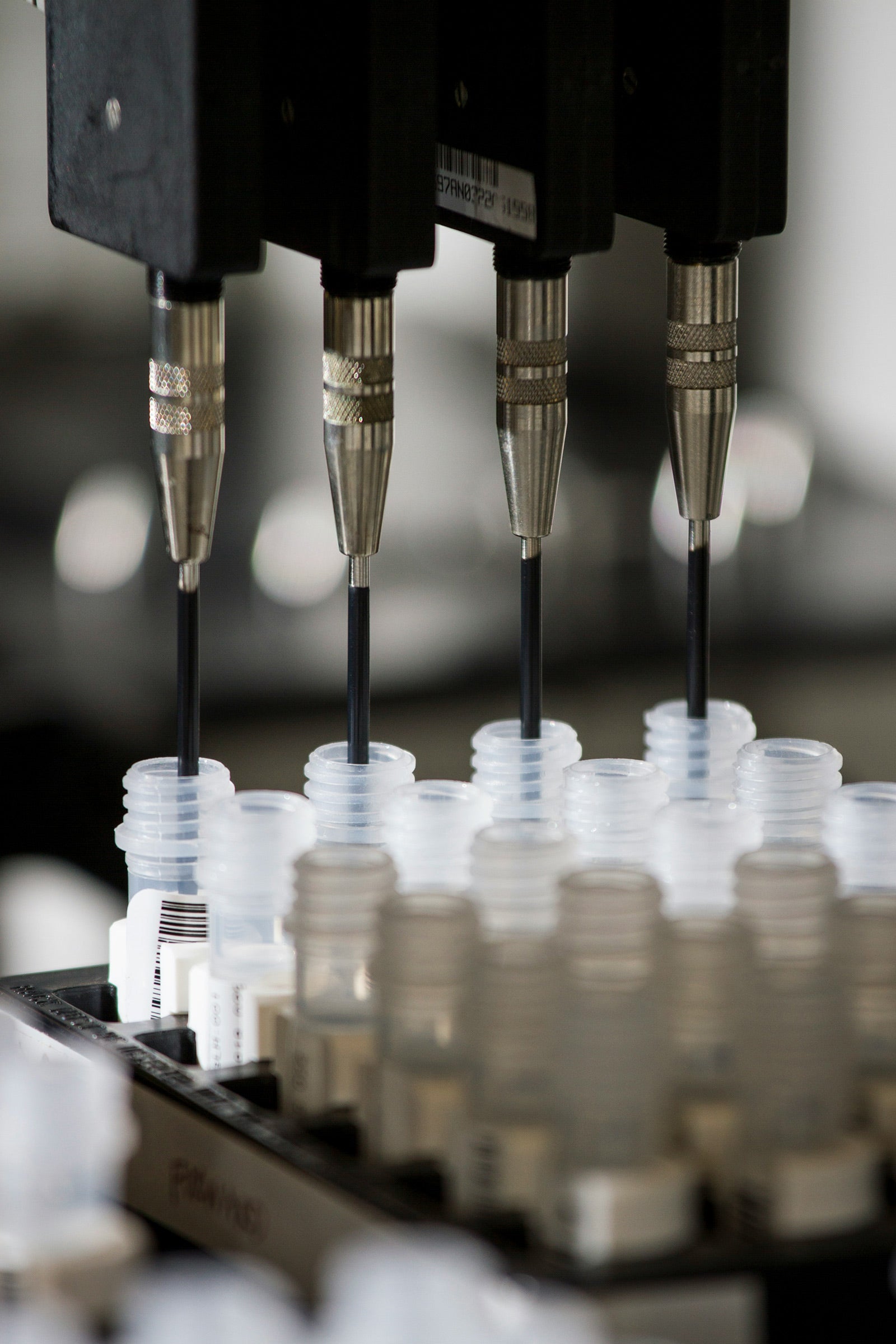Digestive enzyme therapy has emerged as a cornerstone treatment in functional medicine, offering a targeted approach to supporting optimal digestion and overall health. As practitioners increasingly recognize the vital connection between digestive function and whole-body wellness, enzyme supplementation has gained significant attention for its potential to address various digestive challenges and support nutrient absorption.
Understanding Digestive Enzymes: The Foundation of Healthy Digestion
Digestive enzymes are specialized proteins that break down food into smaller, absorbable components. These remarkable biological catalysts work throughout the digestive tract, each designed to target specific nutrients. The three primary categories include proteases (which break down proteins), lipases (which process fats), and carbohydrases (which handle carbohydrates including starches and sugars).
The human body naturally produces these enzymes in various locations, including the salivary glands, stomach, pancreas, and small intestine. However, several factors can impact natural enzyme production, including age, stress, illness, dietary choices, and genetic variations. When enzyme production becomes insufficient, individuals may experience digestive discomfort, nutrient malabsorption, and related health concerns.
The Role of Enzyme Therapy in Functional Medicine
Functional medicine practitioners take a systems-based approach to health, focusing on identifying and addressing root causes rather than simply managing symptoms. Within this framework, digestive enzyme therapy serves multiple purposes beyond basic digestive support.
Enzyme supplementation may help restore optimal digestive function by providing additional enzymatic activity when the body's natural production is insufficient. This approach recognizes that proper digestion is fundamental to nutrient absorption, immune function, and overall health maintenance.
Research suggests that enzyme therapy may be particularly beneficial for individuals with specific digestive challenges. For example, those with pancreatic insufficiency may benefit from lipase supplementation, while individuals with lactose intolerance often find relief with lactase enzyme support.
Key Digestive Enzymes and Their Functions
Proteases: Protein Breakdown Specialists
Proteases are essential for breaking down dietary proteins into amino acids and smaller peptides. These enzymes work in different pH environments throughout the digestive tract. Pepsin functions in the acidic stomach environment, while other proteases like trypsin and chymotrypsin operate in the more alkaline small intestine.
Protease supplementation may support individuals who experience difficulty digesting protein-rich foods or those who follow high-protein diets. Additionally, some research suggests that certain proteases may have applications beyond digestion, though more studies are needed to fully understand these potential benefits.
Lipases: Fat Digestion Support
Lipases are responsible for breaking down dietary fats into fatty acids and glycerol. These enzymes are particularly important for the absorption of fat-soluble vitamins (A, D, E, and K) and essential fatty acids. Pancreatic lipase is the primary fat-digesting enzyme, though other lipases contribute to this process.
Individuals with gallbladder issues, pancreatic concerns, or those who experience discomfort after consuming fatty foods may find lipase supplementation helpful for supporting fat digestion.
Carbohydrases: Complex Carbohydrate Processing
This diverse group of enzymes breaks down various carbohydrates, including starches, sugars, and fiber components. Amylase targets starches, while specific enzymes like lactase, sucrase, and maltase handle different sugars. Additionally, specialized enzymes like alpha-galactosidase can help break down complex sugars found in beans and cruciferous vegetables.
Carbohydrase supplementation may be particularly beneficial for individuals with specific carbohydrate intolerances or those who experience digestive discomfort after consuming certain plant foods.
Specialized Enzymes for Unique Applications
Beyond the primary enzyme categories, several specialized enzymes have gained attention in functional medicine applications:
Cellulase breaks down cellulose, a plant fiber that humans cannot naturally digest. While we don't absorb cellulose for nutrition, cellulase supplementation may help reduce gas and bloating associated with high-fiber foods.
Hemicellulase targets hemicellulose, another plant fiber component, potentially supporting the breakdown of complex plant materials.
Pectinase processes pectin, a fiber found in fruits and vegetables, which may help with the digestion of these beneficial foods.
Phytase breaks down phytic acid, a compound found in grains, nuts, and seeds that can bind minerals and reduce their absorption.
The Science Behind Enzyme Supplementation
Clinical research on digestive enzyme supplementation has demonstrated promising results across various applications. Studies have shown that appropriate enzyme supplementation may help improve symptoms associated with digestive discomfort, support nutrient absorption, and enhance overall digestive function.
Research on pancreatic enzyme replacement therapy has been particularly robust, with numerous studies demonstrating its effectiveness for individuals with pancreatic insufficiency. Additionally, lactase supplementation has been extensively studied and widely accepted as beneficial for lactose-intolerant individuals.
Emerging research continues to explore the potential applications of various enzyme combinations and specialized enzymes, though more studies are needed to fully establish their benefits across different populations and conditions.
Factors Affecting Natural Enzyme Production
Several factors can impact the body's natural enzyme production, making supplementation potentially beneficial:
Age: Enzyme production naturally declines with age, which may contribute to digestive changes commonly experienced by older adults.
Stress: Chronic stress can impact digestive function and enzyme production through various mechanisms, including effects on the nervous system and hormone balance.
Diet: Highly processed foods, excessive alcohol consumption, and poor dietary choices may strain the digestive system and impact enzyme function.
Health Conditions: Various health conditions, including pancreatic disorders, celiac disease, and inflammatory bowel conditions, can affect enzyme production and function.
Medications: Some medications may impact digestive function or enzyme activity, potentially creating a need for additional support.
Implementing Enzyme Therapy in Practice
When considering enzyme supplementation as part of a functional medicine approach, several factors should be evaluated:
Timing: Most digestive enzymes are most effective when taken with meals, allowing them to work alongside the natural digestive process.
Dosing: Appropriate enzyme dosing depends on various factors, including the individual's specific needs, the types of foods consumed, and the severity of digestive challenges.
Quality: Not all enzyme supplements are created equal. Factors such as enzyme activity levels, stability, and manufacturing quality can significantly impact effectiveness.
Individual Needs: Different individuals may benefit from different enzyme combinations based on their specific digestive challenges and dietary patterns.
Safety and Considerations
Digestive enzyme supplements are generally considered safe for most individuals when used appropriately. However, certain considerations should be kept in mind:
Individuals with known allergies should carefully review ingredient lists, as some enzyme supplements may contain allergens or be derived from sources that could trigger reactions.
Those taking medications should consult with healthcare providers, as enzymes may potentially affect the absorption or effectiveness of certain drugs.
People with specific health conditions, particularly those affecting the digestive system, should work with qualified healthcare practitioners when considering enzyme supplementation.
The Future of Enzyme Therapy
As our understanding of digestive health and its connection to overall wellness continues to evolve, enzyme therapy is likely to play an increasingly important role in functional medicine approaches. Ongoing research continues to explore new applications and combinations of enzymes, potentially expanding their therapeutic potential.
The development of more targeted and effective enzyme formulations, combined with better understanding of individual digestive needs, may lead to more personalized approaches to enzyme supplementation in the future.
Supporting Your Digestive Health Journey
Digestive enzyme therapy represents a valuable tool in the functional medicine toolkit, offering targeted support for optimal digestion and nutrient absorption. By understanding the science behind different enzymes and their applications, individuals can make informed decisions about incorporating enzyme supplementation into their health routines.
Whether you're dealing with specific digestive challenges or simply looking to optimize your digestive function, enzyme therapy may offer benefits when used as part of a comprehensive approach to digestive wellness.
Ready to explore how digestive enzyme therapy can support your digestive wellness? Houston Enzymes offers scientifically-formulated enzyme supplements designed to address various digestive needs. Our TriEnza provides comprehensive digestive support with a blend of proteases, lipases, and carbohydrases, making it ideal for those seeking broad-spectrum enzyme support. For individuals with plant food sensitivities, No-Fenol combines cellulase and hemicellulase to help break down problematic plant compounds. Those dealing with protein digestion challenges may benefit from Peptizyde, which features a powerful protease blend. Visit www.houston-enzymes.com to discover our complete line of targeted enzyme formulations and find the right solution for your digestive health goals.


